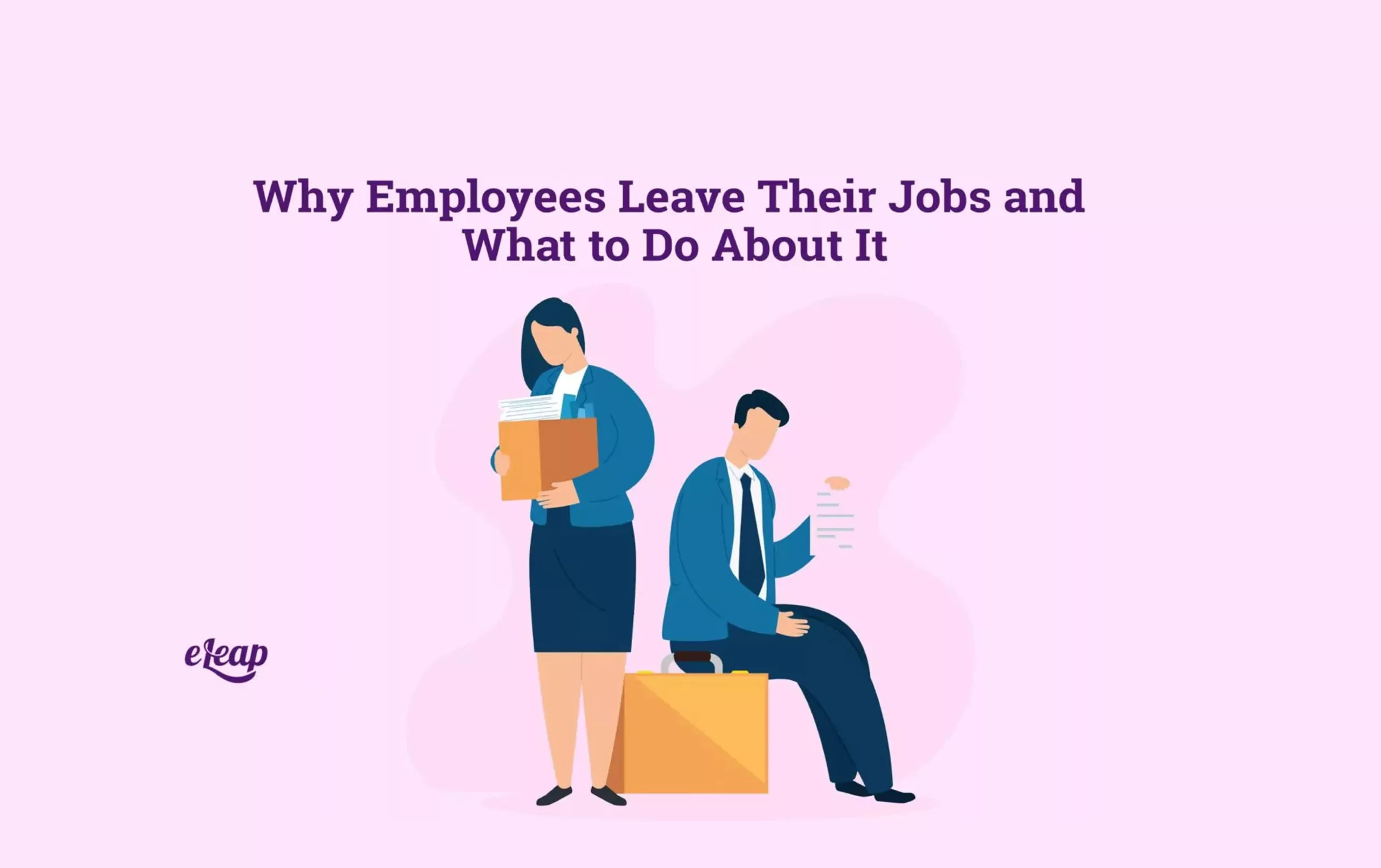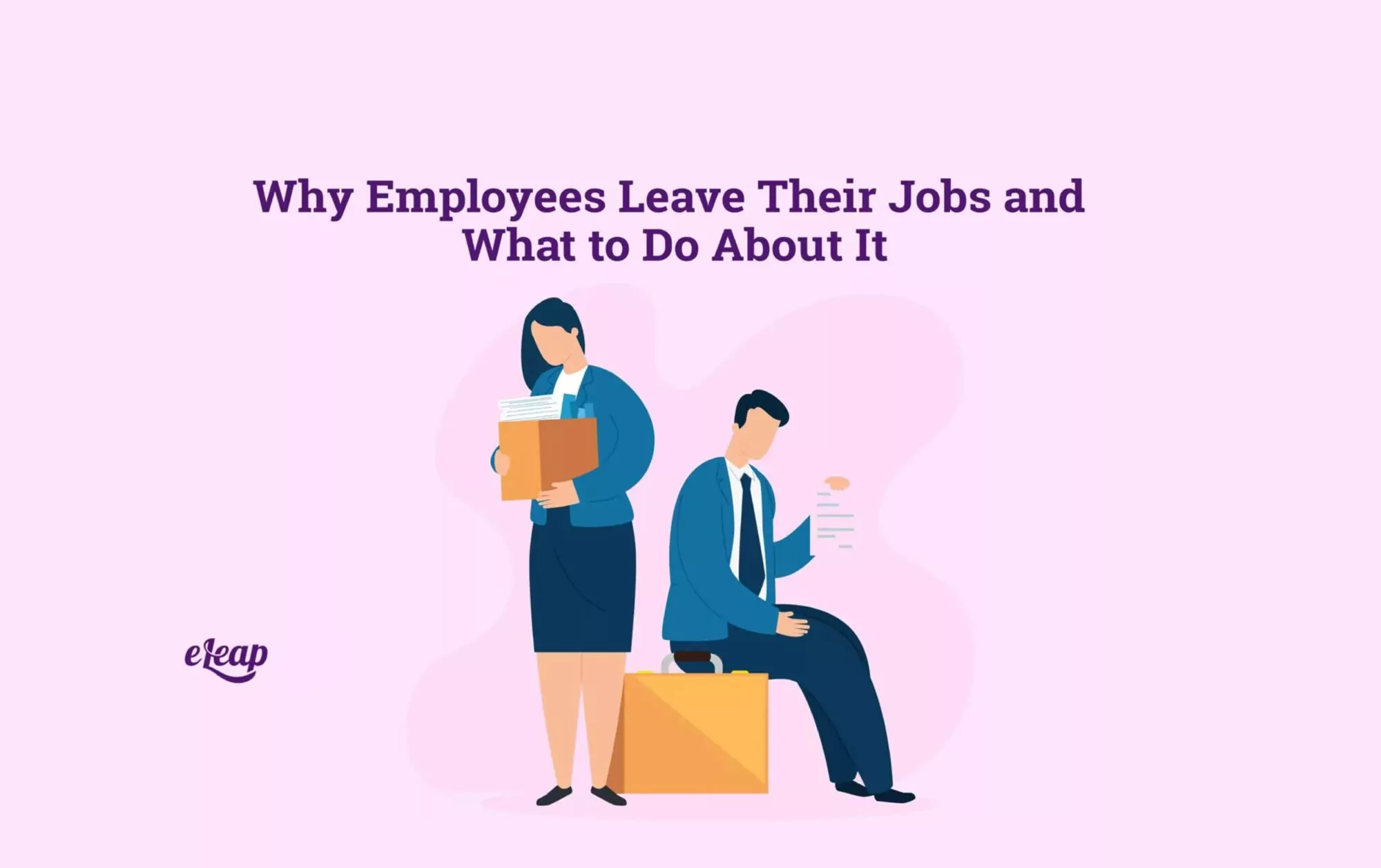Why Employees Leave Their Jobs and What to Do About It

Have you been wondering why employees leave their jobs? There isn’t a simple answer. Not every person who leaves a company is doing it for the exact same reason. However, knowing the most common reasons why employees leave their jobs can set you on the right foot. You can work on employee retention strategies related to what you learn.
With the Great Resignation happening, this is more important than ever before. Looking to the media for the reasons why employees leave their jobs isn’t good enough. The best thing to do is get that information from the people who have left their jobs.
One reason why employees leave their jobs is because the world has shifted to a digital workplace. Many people can live wherever they want while still accessing some of the most fulfilling jobs.
In addition, the pandemic has led to a sense of disempowerment for many. Choosing a job can be extremely empowering and lead to positive feelings. If your company is losing employees, it could be related to these topics.
However, there are other reasons to be aware of. Below you can read up on the ten most common reasons why employees termination their jobs. Then, we’ll share information on how to prevent that from happening with your team members.

Why Employees Leave Their Jobs Today
Having great employees is the best asset for any organization. Treating them well ensures they are productive and engaged. Treating them in other ways can break down motivation and lead to people quitting.
There are many reasons for a high turnover rate, but some are more common than others. Learning why employees leave their jobs is the first step to avoiding employee churn.
Lack of Good Leadership
Everyone has heard that employees don’t leave their jobs, they leave their managers. In many cases, this is extremely accurate. One study of more than 7,000 workers found that over 50% left because of a manager they didn’t want to work with.
Keep in mind that most people don’t leave a job on a whim. There is serious thought and consideration behind it. If people are leaving, there’s likely something going wrong at your company.
Keeping the most talented people on your team is essential. That means taking a hard look at yourself and seeing what may be wrong. This could range from task distribution to priority and goal setting or even people management skills.
Excessive Amounts of Work
If you have great team members, it might seem that you should work them as hard as you can. However, this can also cause serious issues. Employee burnout is often related to workers who have too much to do every day. It might seem that giving out more work is a way to acknowledge someone’s great performance. However, for employees, this is more likely to be seen as a punishment.
In situations where workload needs to increase, the job status should also increase.
This boils down to offering title changes, salary raises, and promotions to your best and brightest. If this isn’t provided when you give them more work, they might look for companies that show more appreciation.
No Acknowledgement
Of workers surveyed, over 80% said that having no recognition of their achievements played a part in choosing a new employment. That’s a huge number, so this factor shouldn’t be discounted. It’s simple to downplay the importance of recognition and rewards for great work. However, employees will not see it the same way.
Even a simple “good job” can have a huge impact on workers. This is why leaders should communicate with their team about what motivates them. Acknowledgment comes in many forms. It might mean internal recognition, a promotion, a flexible schedule, or extended vacation time.
Unfulfilled Commitments
When you make a promise to a member of your team, make sure you follow through on it. If you end up committing to something that you don’t fulfill, it can cause employees to start looking for other jobs.
If you do follow through, it shows that you can be trusted. Workers see you’re honorable, and it will improve your relationship with them. Disregarding the promises you made paints you as uncaring and disrespectful. This has a huge contribution to a worker choosing to leave the company.
Team Member Relationships
Relationships with management can play into why employees leave their jobs, but so can connections with those on their team. The people a team member works with and interacts with are an important part of the overall work environment.
Based on research, having a best friend at work is a huge factor in whether employees feel satisfied or happy at their company. A great relationship between coworkers is essential to keep workers from leaving. If you notice that team members are having issues with each other, step in and help solve the problem.
Lack of Flexibility
Workers today appreciate the option of a flexible work schedule. Not everyone is happy at the office every day. In addition, some would rather work less standard hours.
Based on one survey, about 36% of workers are unwilling to work somewhere that isn’t flexible with work schedules. That adds up. Instead of having a conventional 9-to-5 for everyone, consider other options. Telecommuting opportunities or the ability to work different hours can keep people from leaving their jobs.
Methods to Stop Employee Attrition at Your Company
Now that you know some of the top reasons why employees leave their jobs, it’s up to you to prevent it from happening. The good news is that it’s possible, even if people have already started to leave. The important thing to remember is that stopping turnover involves communication and follow-through.
Give Attention to All Team Members
Everyone on the team should have communication with leadership, even if you don’t think they will quit. You never know what workers think, so it’s better to assume everyone could leave.
Give attention to all team members. Make sure they all have opportunities for themselves and the team as a whole. When employees aren’t motivated or productive, this is a sign something is wrong. The main takeaway is to avoid taking any worker for granted. Everyone could be thinking about leaving. Improve things for every worker to get the best results.
Understand Changes Must Be Made
What you’re doing now is contributing to why employees leave their jobs. While you might be happy, that doesn’t mean all workers are. When people are leaving, it’s a signal that things need to change. It might be challenging to hear there are issues. You may have no idea how to implement changes. The most important thing to do first is to be aware a problem is present.
Accept this yourself before you talk with your team members. This gives you time to stop being defensive so you can hear what people have to say. When you know change is needed and accept that, you can move forward to create that shift.
If multiple people have left, be aware that things can get worse if you do nothing different. Let yourself accept that things have changed. Move past that to start working with the team members still there.
Implement One-on-One Conversations
After realizing change is needed, the next step is to talk to workers. This is the best way to find out why others are leaving. Problems have often grown by the time you reach this point.
Prioritize listening to team members about their issues. Always take what they say seriously. This might mean getting some work done later, but it beats losing the productivity of someone who leaves for good.
These should be one-on-one meetings with every single worker. You should continue holding them until the turnover is far in the past. Otherwise, you could end up in this situation again. All in all, make sure you have weekly or biweekly meetings to check in with everyone. Find out about problems early, so things don’t reach this point again.
Take Action
You’ve listened to why employees leave their jobs, and you know what problems are happening. Now you have to take action before things can get worse. While some problems may be challenging to fix, starting the process can help increase morale.
Keep in mind that it might take several meetings for team members to open up about all the problems they are dealing with. At first, you might get one or two small issues. This lets you make changes and show you can be trusted.
If honesty is appreciated and changes are made, workers will come to you with more extreme problems. Show progress, and you can win them over while removing obstacles in the way.
In Conclusion
If you’re looking to learn more about why employees leave their jobs, you probably want a solution to the issue. You might be stressed and dealing with all sorts of things. Use some of the tips above to ensure employees stay happy and are less likely to leave.
Being diligent, intentional, and organized can go a long way toward stopping employee attrition. Hold one-on-ones and get to know the people on your team. You’ll understand why employees leave their jobs and have a chance to stop that practice at your company.